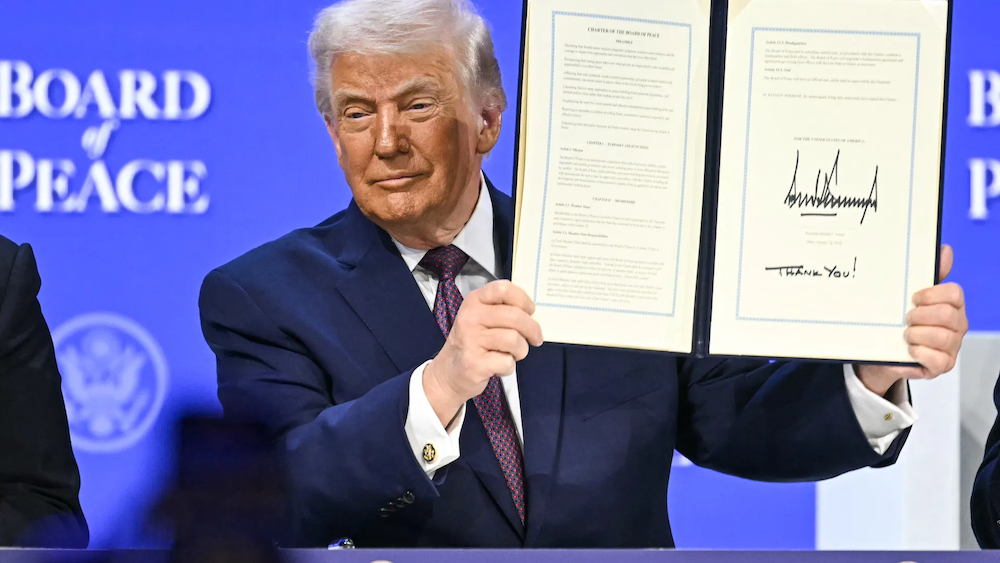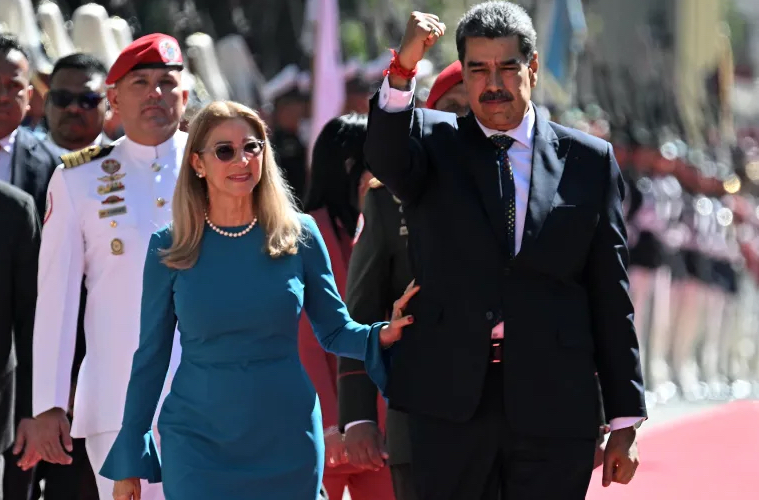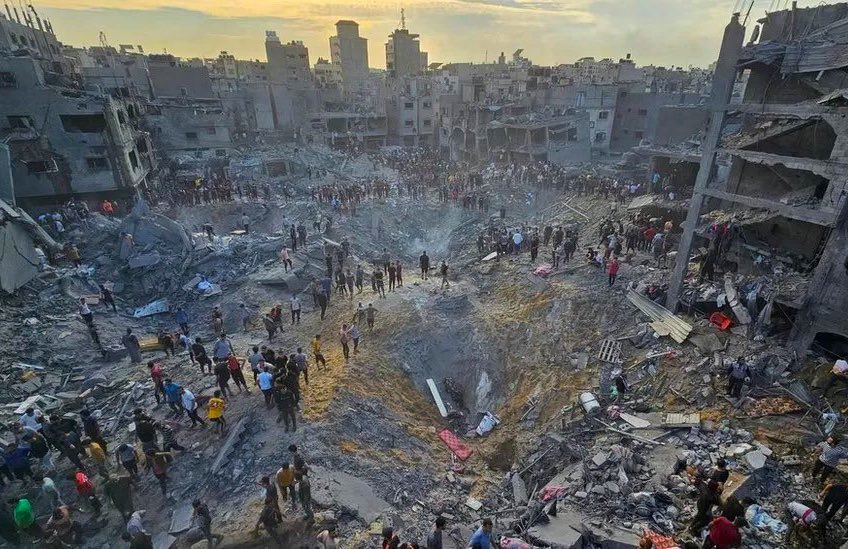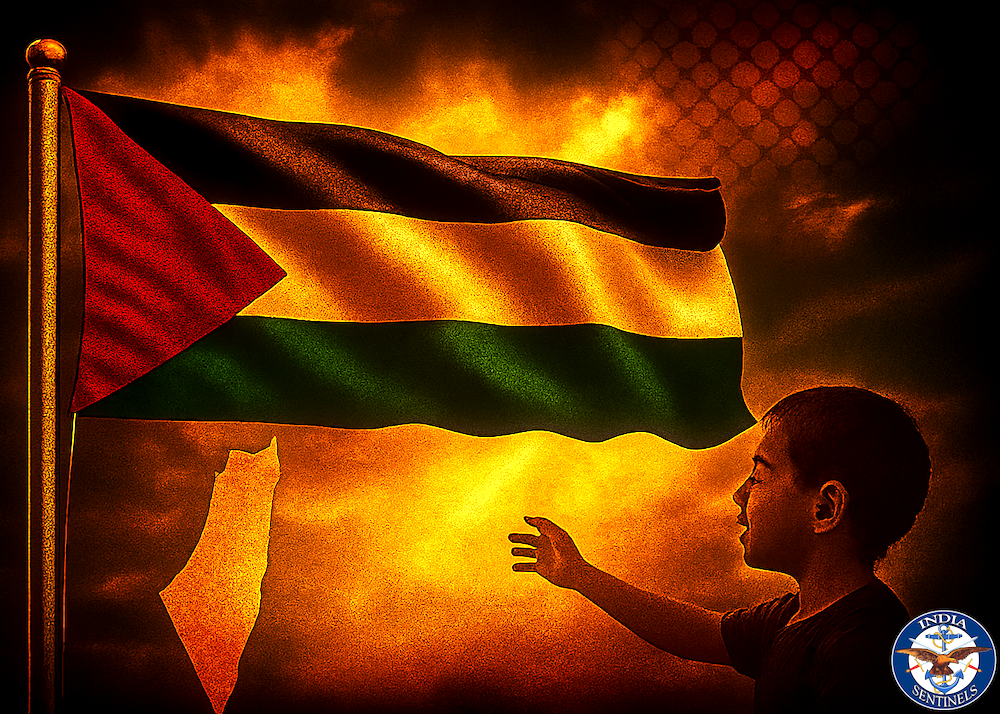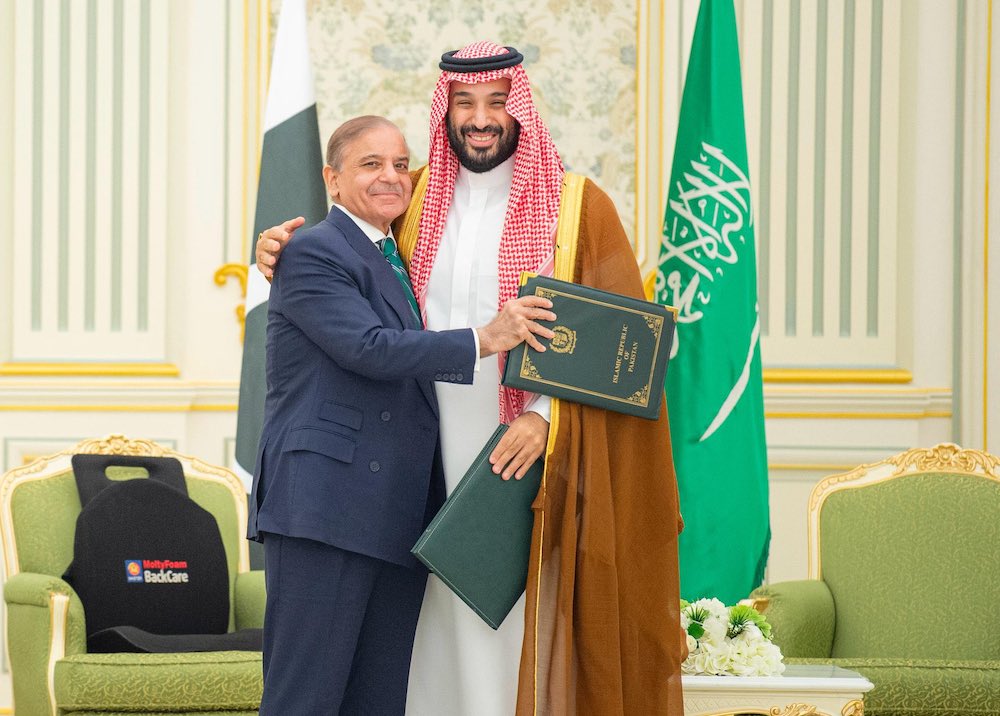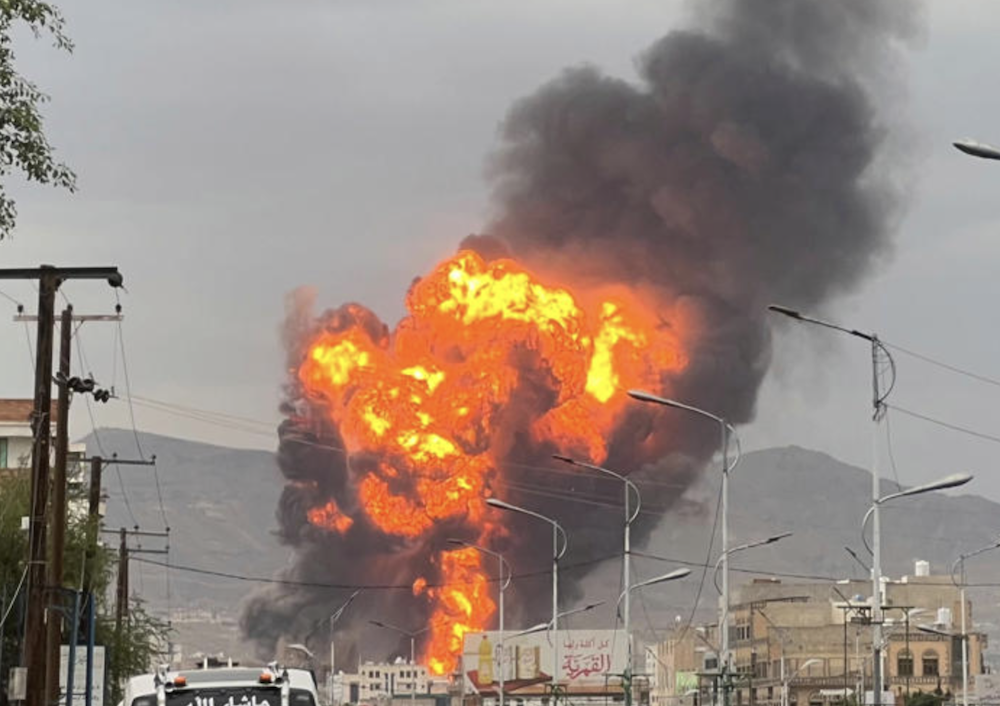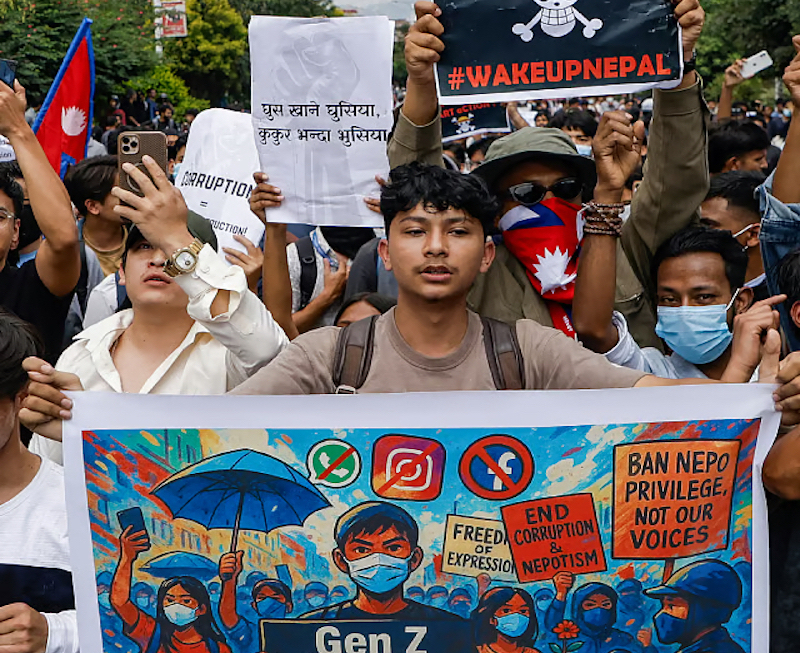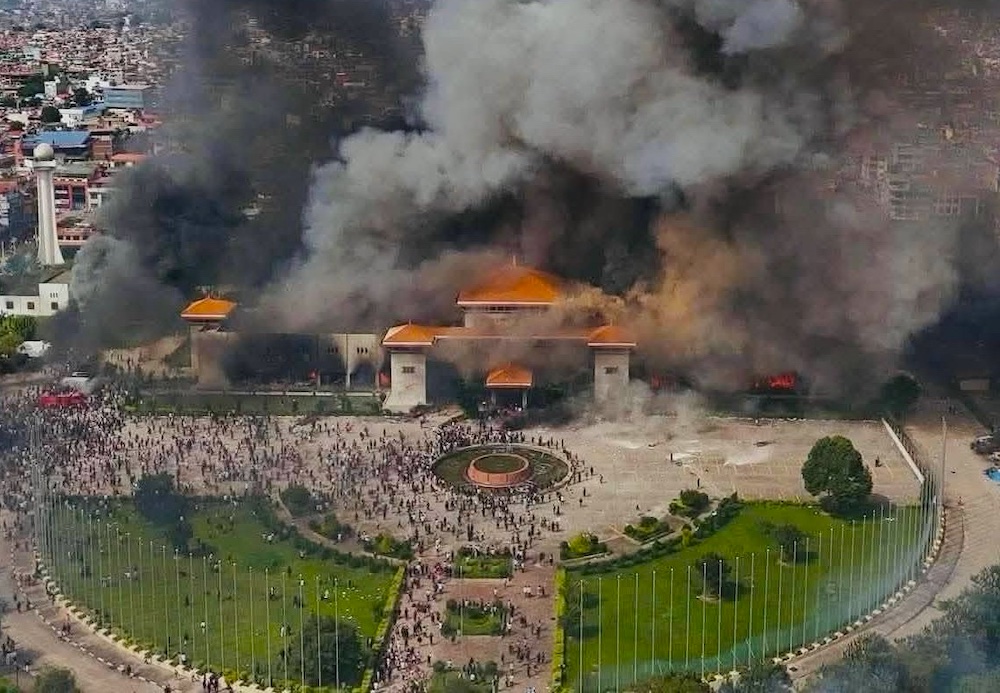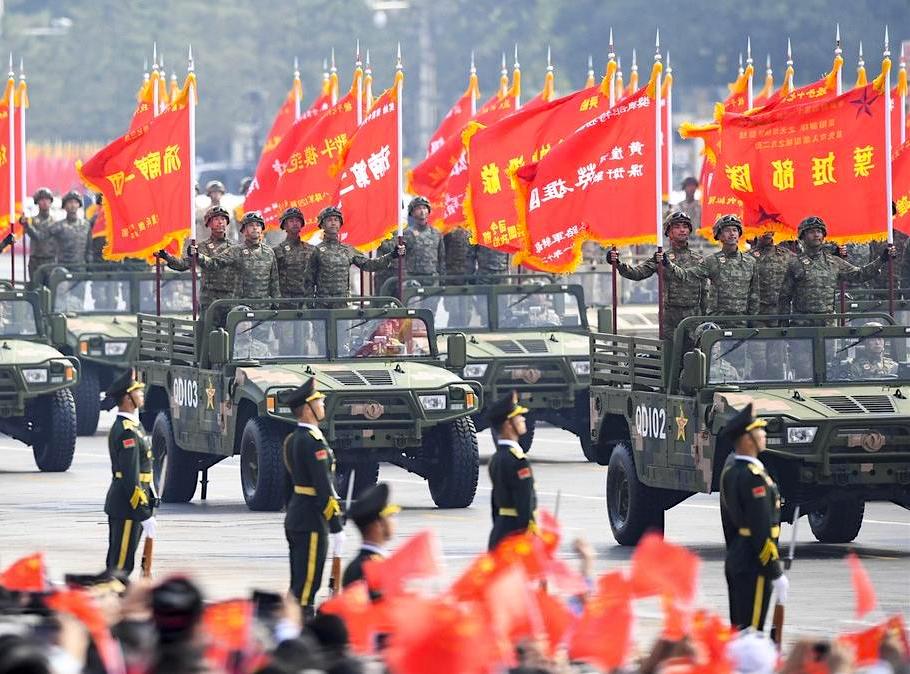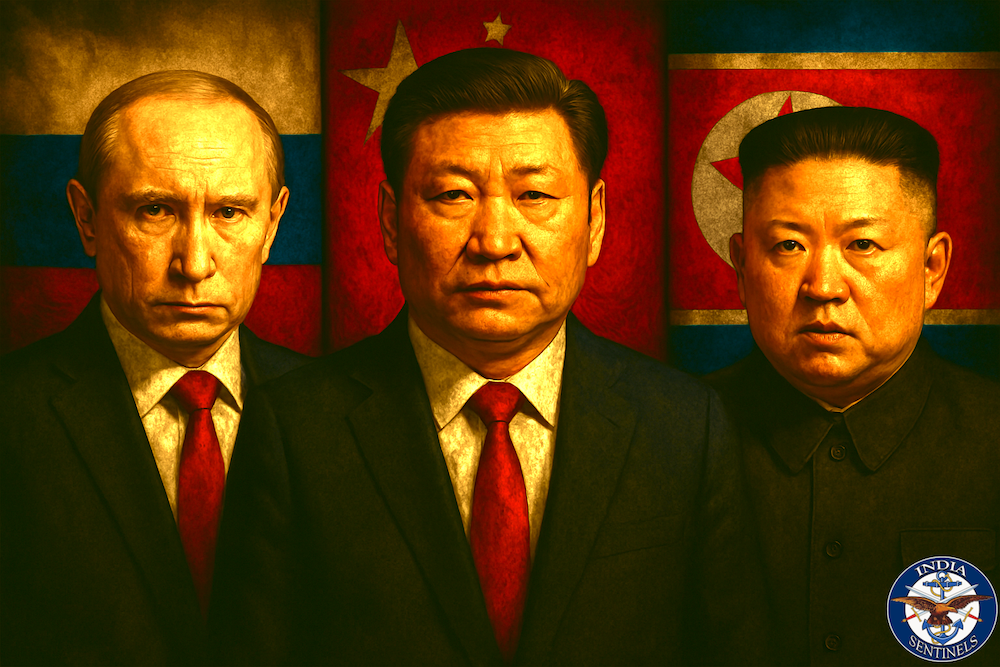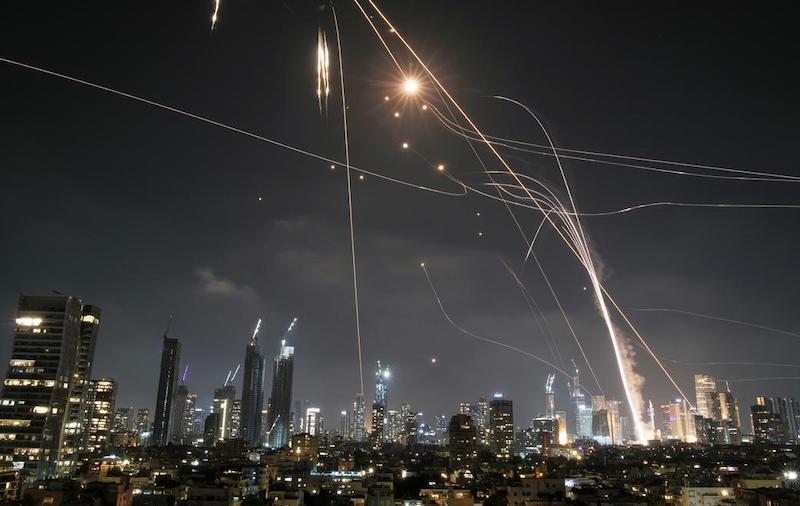 Israeli Iron Dome air defense system fires to intercept missiles over Tel Aviv. (Viral photo via X)
Israeli Iron Dome air defense system fires to intercept missiles over Tel Aviv. (Viral photo via X)
New Delhi: The Middle East stands on the precipice of a wider regional conflict as Israel’s unprecedented military operation against Iran enters its second day. Both nations have exchanged devastating missile strikes that have claimed hundreds of lives and brought the region to its most dangerous moment in decades.
As India Sentinels reported earlier, Israel launched what it called “Operation Rising Lion”, on Friday, deploying over 200 fighter jets including F-35s, F-15s, and F-16s in the largest assault on Iran since the Iran-Iraq War of the 1980s. The operation began at approximately 3am Tehran time, with the Israeli defence minister, Israel Katz, declaring a nationwide state of emergency and describing the action as a “pre-emptive strike”.
Israeli officials justified the operation by claiming intelligence indicated Iran had amassed enough enriched uranium to produce up to 15 nuclear weapons within days. The Israeli prime minister, Benjamin Netanyahu, declared the mission would continue “for as many days as it takes to remove this threat,” emphasising that Israel was “striking at the heart of Iran’s nuclear enrichment programme.”
The Israeli Air Force launched five waves of airstrikes by 6.30am Israel time, dropping more than 330 munitions on approximately 100 targets across Iran. The operation was supported by extensive Mossad intelligence operations that had pre-positioned precision weapons and established covert drone bases near Tehran to disable Iranian air defences.
Iran nuclear facilities damaged
Israeli strikes focused on three major Iranian nuclear sites with varying degrees of success. The Natanz nuclear facility, Israel’s primary target, suffered significant damage to its uranium enrichment capabilities. The above-ground pilot fuel enrichment plant was completely destroyed, while the underground facility lost power, potentially damaging the centrifuges used for uranium enrichment.
The International Atomic Energy Agency (IAEA) confirmed that the electrical infrastructure, including main power supply and backup generators, was destroyed. At the Isfahan nuclear complex, four buildings at this uranium conversion facility were damaged, including infrastructure for producing metallic uranium. Satellite imagery revealed substantial damage to structures within this Chinese-built complex that employs approximately 3,000 scientists.
However, the heavily fortified underground Fordow fuel enrichment plant, buried deep within a mountain, showed no visible signs of damage. Israeli strikes apparently failed to penetrate its defences.
Iran’s military command structure decimated
Israeli forces systematically targeted Iran’s military command structure and missile capabilities. The Kermanshah missile facility showed multiple damaged buildings and debris scattered around Islamic Revolutionary Guard Corps (IRGC)-operated sites. Shiraz military and electronics facilities in Fars province sustained active fires around missile manufacturing and storage areas.
The Shahid Modarres garrison rocket production facility near Bid Kaneh, southwest of Tehran, saw multiple buildings destroyed. Missile complexes near Tabriz and IRGC facilities in Piranshahr were also hit.
Key Iranian commanders killed
The Israeli strikes successfully eliminated key figures in Iran’s military hierarchy. Hossein Salami, aged 65 and commander of Iran’s Islamic Revolutionary Guard Corps, was killed in the initial Friday strikes. He had recently warned that Tehran would “open the gates of hell” if attacked.
Major General Mohammad Bagheri, chief of staff of Iranian armed forces since 2016 and a former IRGC commander who participated in the Iran-Iraq war, was also killed. Major General Gholam Rashid, deputy commander of Iran’s military and former head of IRGC Khatam al-Anbia headquarters, died in the strikes.
Nuclear scientists targeted in precision strikes
Nine prominent Iranian nuclear scientists were killed in targeted strikes on their residences. Among them was Fereydoun Abbasi, former head of the Atomic Energy Organization of Iran (2011–2013) and ex-parliament member with a PhD in nuclear physics. He had previously survived an Israeli assassination attempt in 2010.
Mohammad Mehdi Tehranchi, theoretical physicist and president of Islamic Azad University, who also served as vice president for Research and Technology at Shahid Beheshti University, was killed. Abdolhamid Minouchehr, nuclear engineer with expertise in reactor physics and nuclear simulation and head of Nuclear Engineering Faculty at Shahid Beheshti University, also died.
Other scientists killed included Ahmad Reza Zolfaghari, a nuclear physicist involved in uranium processing operations; Seyed Amirhossein Feqhi, specialist in advanced centrifuge calibration and testing; and Motallebzadeh, a nuclear technician involved in laboratory research and quality control. Additional victims included Ali Karimi, Mansour Asgari, and Saeed Borji.
Civilian casualties mount
Iranian authorities report that at least 224 people have been killed since the Israeli offensive began, with approximately 90% of them being civilians. The Iranian health ministry confirmed 1,277 wounded, with casualties occurring in residential areas where military officials lived.
Multiple children were reported killed in strikes on residential neighbourhoods in Tehran, including in the Shahrak-e Mahallati district housing high-ranking military officers and their families.
Iran launches sustained missile retaliation
Iran launched its initial retaliatory strike on the evening of June 13, firing approximately 100 drones towards Israeli territory. However, these were easily intercepted by Israeli air defences, with Iranian response capabilities severely hampered by the elimination of key military commanders and air-defence systems.
Iran escalated its response on Saturday, launching dozens of ballistic missiles targeting multiple Israeli cities. The attacks resulted in casualties across northern and central Israel, with Israeli emergency services reporting “multiple fatalities” and 63 injured, including one in critical condition.
Iran had fired over 350 missiles at Israel, with Iranian attacks clustering around 30–60 missiles at a time. The sustained bombardment appeared designed to overwhelm Israeli air defences through volume rather than precision.
Israeli cities under fire
Israeli authorities have confirmed multiple casualties from Iranian missile strikes. Iranian missiles struck several strategic targets, damaging the Israeli defence ministry complex in Tel Aviv and hitting Haifa oil refinery.
Multiple residential buildings were destroyed in Ramat Gan, with nine buildings completely destroyed and hundreds damaged. Ben Gurion Airport was closed indefinitely.
International community divided
The US president, Donald Trump, praised Israel’s military actions as “excellent” and “very successful” while denying Iranian claims of US involvement. Trump cautioned Iran against broadening retaliation to include American targets and urged Tehran to accept stringent nuclear programme limitations.
The secretary of state, Marco Rubio, emphasised that the US was “not involved in strikes against Iran” and prioritized “protecting American forces in the region.” Two US officials confirmed that the American military assisted in intercepting Iranian missiles aimed at Israel.
European response mixed
The EU and major European powers called for restraint while expressing varying degrees of support for Israel’s right to self-defence. The UK prime minister, Keir Starmer, described the situation as “concerning” and urged all parties to “step back and reduce tensions.”
The German chancellor, Friedrich Merz, expressed support for Israel’s right to defend itself while emphasizing the need to prevent Iran from developing nuclear weapons. The French foreign minister, Jean-Noël Barrot, called for “all parties to exercise restraint” and avoid escalation.
The conflict has deepened divisions among EU countries, with some members pushing for stronger action against Israel’s overall conduct in the region.
Russia offers mediation
Russia strongly condemned the Israeli strikes as “unprovoked” and “categorically unacceptable,” with the president, Vladimir Putin, offering to mediate between the parties. Moscow’s response was complicated by its strategic partnership with Iran, particularly Tehran’s supply of drones and missiles for Russia’s war in Ukraine.
The Russian deputy foreign minister, Sergey Ryabkov, warned of “extremely dangerous” risks at Iran’s nuclear facilities and called for the “military stand-off to cease.” However, Russia appeared reluctant to take stronger action, balancing its relationships with both Iran and Israel.
China warns of regional spillover
China warned that the Iran-Israel conflict may spread wider instability in the Middle East, with the foreign minister, Wang Yi, reaching out to both countries. The Chinese foreign ministry spokesman, Guo Jiakun, stated: “If the conflict continues to escalate or spill over, other countries in the Middle East will inevitably bear the brunt.”
China criticized Trump for exacerbating the conflict, arguing that “issuing threats and increasing pressure will not aid in de-escalating the situation.” However, analysts noted that China lacks significant capability for power projection in the Middle East and has limited appetite for direct involvement.
Muslim world condemns Israeli strikes
Twenty-two Muslim-majority countries, including those with diplomatic ties to Israel, issued a joint statement expressing “categorical rejection and condemnation” of Israel’s attacks on Iran. The coalition included Gulf nations such as Saudi Arabia, UAE, Qatar, Oman, and Bahrain, along with African countries, Turkey, and Indonesia.
Saudi Arabia’s foreign ministry condemned the “blatant aggressions against the brother Islamic Republic of Iran,” while the UAE expressed “deep concern over the escalation and its implications for regional security.” Qatar characterized the attacks as “a blatant violation of Iran’s sovereignty.”
As of late Sunday evening, the conflict shows no signs of abating, with both nations threatening continued military action. The Iranian foreign minister, Abbas Araghchi, stated that Iranian responses would only stop if Israeli strikes ceased, while Katz warned that “Tehran will burn” if missile attacks continue.
The crisis has disrupted nuclear negotiations between Iran and the United States, with Tehran refusing to engage in talks while under Israeli attack. The conflict represents the most serious escalation between the two regional powers in decades, with growing international concern about the potential for a wider regional war that could draw in other powers.
The coming days will prove critical in determining whether diplomatic efforts can prevent further escalation or if the Middle East will descend into a broader conflict with potentially catastrophic consequences for regional stability and global security.

